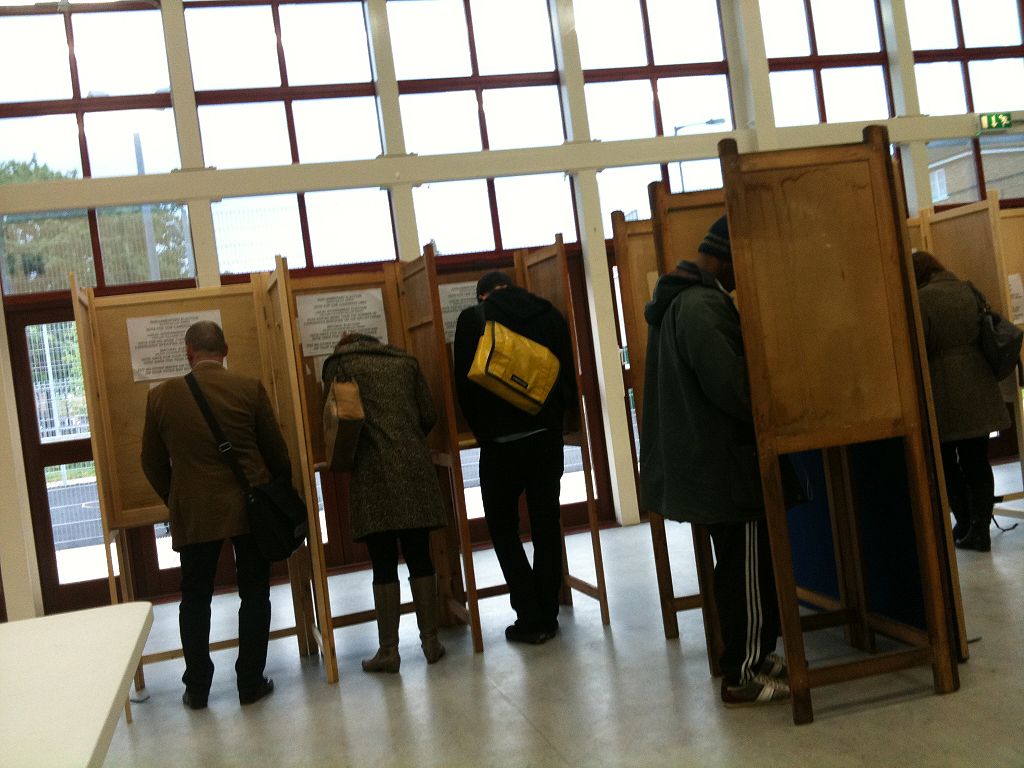Over 1.5 million individuals are experiencing homelessness throughout the country. Homeless voters could play an important role in the coming election. But will they?
Policy decisions regarding everything from funding for welfare, housing and health care, to initiatives that create new jobs and provide educational grants directly impact people who are poor.
Yet though they have much at stake, historically, low-income and homeless individuals vote at the lowest rate in the country and their turnout for the 2008 presidential election was no exception. Only 51.9 percent of the poorest voting-aged citizens actually voted, compared with 79.8 percent of the wealthiest voting aged citizens, according to the U.S. Census Bureau.
And now advocates worry that new voter identification laws in some states could potentially further discourage and confuse poor voters, and not just in those states but throughout the country.
Before the 2011 legislative session, only two states had imposed strict photo identification requirements. Courts blocked laws in Pennsylvania, Texas and Wisconsin. But new photo ID laws will be in effect in Kansas and Tennessee this November, according to a report put out by the Brennan Center at the New York University School of Law.
And while no such ID law is in effect in the District, a new law in Virginia changes voter ID requirements. While the list of acceptable IDs has grown, the law eliminates the option of carrying out an affidavit of identity when voting at the polls or applying for an absentee ballot in person.
“Inconsistent messages about voting and what is required can seriously deter potential voters,” said Neil Donovan, executive director for the National Coalition for the Homeless. “Inconsistent messages deter potential voters everywhere.”
In an effort to convince poor residents that they can and should vote, advocacy groups have been busy in recent days with registration drives and educational campaigns.
The National Coalition for the Homeless and graduate students from George Washington University’s Trachtenberg school joined forces for National Homeless & Low-Income Voter Registration Week.
Among the featured events was a voter registration drive, held October 4‒6 at Martin Luther King Jr. Library, aimed at catching last-minute unregistered D.C. voters before the Oct. 7 deadline.
“We can only register individuals who reside in D.C., which is frustrating for people in Maryland and Virginia. But we’re still able to provide voting information for their [respective] areas,” said Diane Mars, a George Washington University graduate student.
Vounteers for the program helped to clarify voter rules for those with questions. A permanent home is not required to vote and when registering, the address of a temporary dwelling such as a shelter usually suffices, according to the National Coalition for the Homeless.
The matter of identification can be a little more complicated. Many homeless and insecurely housed people have difficulty keeping documents such as a birth certificates and
identification cards safe and secure, and find the cost of replacing them prohibitive. Yet a state-issued identification number, or the last four digits of the individual’s social security number is required to register.
That being said, Anamite Gall, a graduate student at George WashingtonUniversity, said she had been encouraged to find out that many of the homeless people she met were not kept out by the barriers.
“We have been happy to hear that many people we speak with in transitional settings are actually already registered and prepared to vote. More than we expected,” she said.
Meanwhile, the People For Fairness Coalition, a grassroots organization formed by homeless people and their supporters, has also been hard at work, holding four town-hall-style meetings stressing the importance of voting and organizing rides to the polls on Nov. 6.
“We are trying to get the homeless community to come together and become self advocates for their own futures. We aren’t telling anyone who to vote for, we just want to get the homeless politically active and to know their rights,” said the group’s director, Robert Warren, who is also a Street Sense vendor.
“There are too many issues at stake. We need to come together to get people to the polls in order to have our voices heard,” says Warren.




